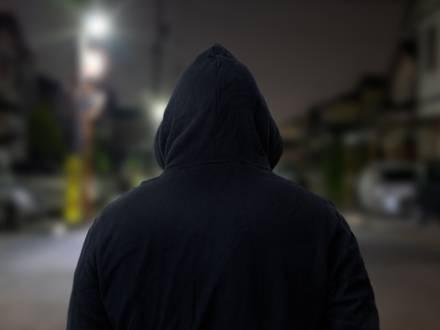Recent Blog Posts
Two People Arrested in Naperville for Attempted Armed Robbery
 Pre-trial release has been denied for two individuals who allegedly attempted to rob a Lisle convenience store at knifepoint and attempted to rob a woman at a Naperville bank just days ago. Both suspects have been charged with one count of armed robbery and one count of attempted armed robbery. (A Class X felony and a Class 1 felony).
Pre-trial release has been denied for two individuals who allegedly attempted to rob a Lisle convenience store at knifepoint and attempted to rob a woman at a Naperville bank just days ago. Both suspects have been charged with one count of armed robbery and one count of attempted armed robbery. (A Class X felony and a Class 1 felony).
Armed robbery is a serious charge in Illinois that can benefit from strong legal representation. Your attorney may be able to have the charges lowered to a less serious offense through a plea deal, negotiate a lesser sentence, prove you are not guilty of the charges in court, or have the charges dropped because of police error or violations of your Constitutional rights. Now is the time to speak to a knowledgeable Oakbrook Terrace, IL criminal defense lawyer.
Are Field Sobriety Tests Sufficient Probable Cause for Arrest?
 A police officer must have reasonable suspicion that a driver is impaired before pulling him or her over by personally witnessing the driver driving erratically in some way. If there is reasonable suspicion to pull over a driver, then there must be probable cause for an arrest. This means that before making a DUI arrest, the police officer must have probable cause to believe the driver is driving under the influence or sufficient evidence that the driver has "probably" committed the crime of DUI.
A police officer must have reasonable suspicion that a driver is impaired before pulling him or her over by personally witnessing the driver driving erratically in some way. If there is reasonable suspicion to pull over a driver, then there must be probable cause for an arrest. This means that before making a DUI arrest, the police officer must have probable cause to believe the driver is driving under the influence or sufficient evidence that the driver has "probably" committed the crime of DUI.
Officers usually get this probable cause by asking the driver questions to see if his or her words are slurred, eyes red and watery, or if there is a strong smell of alcohol coming from the driver. If questioning the driver leads the officer to believe he or she is intoxicated, the officer may ask the driver to perform field sobriety tests to be sure before an arrest is made. While field sobriety tests are used in every state – but are not mandatory in any state – they are often less than accurate yet can be used as evidence in court to prove an individual was driving under the influence.
Are Means, Motive, and Opportunity Enough to Convict?
 Anyone who enjoys watching crime dramas has likely heard a prosecutor say they will show the jury that the defendant had means, motive, and opportunity to commit the crime (often a murder). In real life, means, motive, and opportunity can show the jury why the defendant was charged with the crime but are not legally sufficient to prove guilt.
Anyone who enjoys watching crime dramas has likely heard a prosecutor say they will show the jury that the defendant had means, motive, and opportunity to commit the crime (often a murder). In real life, means, motive, and opportunity can show the jury why the defendant was charged with the crime but are not legally sufficient to prove guilt.
At least, this is how the judicial system is supposed to work. Jurors tend to respond to a prosecutor walking them through these elements of a crime, even though theoretically showing that the defendant committed the crime beyond a reasonable doubt is the legal standard.
If you or a loved one has been accused of a criminal offense and are facing a trial, it is important to know just how "means, motive, and opportunity" could harm your case. Speaking to an Oakbrook Terrace, IL criminal defense attorney can ensure you understand your options and have a legal advocate in your corner who will fight for your rights and your future.
New 2025 Laws Regarding Prostitution in Illinois
 Although it seems surreal that it is even a conversation, police departments across the state may soon be required to implement policies that prohibit officers from having sex with a person they are investigating for prostitution. Other proposed changes regarding the criminal offense of prostitution are detailed below.
Although it seems surreal that it is even a conversation, police departments across the state may soon be required to implement policies that prohibit officers from having sex with a person they are investigating for prostitution. Other proposed changes regarding the criminal offense of prostitution are detailed below.
House Bill 4410 cleared the General Assembly this week, so following a signature from the governor making it the law, police departments would have until July 1 to fully implement the law into department policy. Prostitution is a criminal offense with penalties and consequences that can impact a person’s life for a very long time. If you are charged with prostitution, it can be extremely helpful to speak to a knowledgeable Oakbrook Terrace, IL sex crimes attorney.
The Reliability of DNA Evidence Used in Murder Convictions
 Many of us have watched so many television shows like CSI that we tend to believe DNA evidence is infallible. While DNA evidence has certainly been a game-changer in criminal prosecutions, there are certain instances when DNA evidence may not be accurate. This is particularly important when a person is on trial for homicide or another serious crime.
Many of us have watched so many television shows like CSI that we tend to believe DNA evidence is infallible. While DNA evidence has certainly been a game-changer in criminal prosecutions, there are certain instances when DNA evidence may not be accurate. This is particularly important when a person is on trial for homicide or another serious crime.
On the other side, DNA evidence has also exonerated many people who were convicted for a crime they did not commit, although there may be many more who have not been exonerated. Since 1989, 575 individuals have been exonerated through DNA evidence, some of them on death row at the time.
If you are on trial for murder, you could potentially be sentenced to life in prison. This makes all evidence against you – including DNA evidence – crucial to the outcome of your charges. When you have an experienced Rolling Meadows, IL criminal defense attorney by your side, you will receive a vigorous defense.
What Defense Strategies Can I Use Against Sex Crime Charges?
 Illinois treats sex crimes harshly, in some ways even more than other offenses. Being convicted of a sex crime can lead not only to heavy fines and lengthy prison sentences but can also land someone on the sex offender registry. This can severely affect the defendant’s efforts to find employment and build a life within a community.
Illinois treats sex crimes harshly, in some ways even more than other offenses. Being convicted of a sex crime can lead not only to heavy fines and lengthy prison sentences but can also land someone on the sex offender registry. This can severely affect the defendant’s efforts to find employment and build a life within a community.
Understanding the different defense strategies against sex crime charges is an important step toward protecting yourself and your future. Keep in mind, however, that the best defense against sex crime allegations is to hire an experienced Illinois criminal defense attorney to represent you.
What Constitutes a Sex Crime Under Illinois Law?
The defense strategies against sex crime charges can vary depending on what the charge is. Some of the sexual offenses recognized by Illinois law include:
-
Criminal sexual assault: This means sexually penetrating someone else without them knowingly giving consent, also known as rape.
What Are the Limitations of DNA Evidence in a Burglary Case?
 Burglary is a felony that carries fines and prison time in Illinois. In a burglary case, the prosecution’s aim is to prove the defendant committed the assault beyond a reasonable doubt. One of the ways prosecutors try to do this is by presenting DNA evidence. When they are able to match the defendant’s DNA to DNA found at the scene of the crime, it strongly supports the claim that the defendant committed the offense.
Burglary is a felony that carries fines and prison time in Illinois. In a burglary case, the prosecution’s aim is to prove the defendant committed the assault beyond a reasonable doubt. One of the ways prosecutors try to do this is by presenting DNA evidence. When they are able to match the defendant’s DNA to DNA found at the scene of the crime, it strongly supports the claim that the defendant committed the offense.
However, DNA does not secure a conviction, and there are limitations to how much DNA evidence can impact a burglary case. This article will discuss what burglary is, how DNA evidence is used in a trial, and the limitations of DNA evidence. If you have been accused of burglary, contact an Illinois criminal defense lawyer as soon as possible to begin building your defense.
What Is Burglary?
When people think of burglary, they usually picture someone breaking into a home and stealing property. Under Illinois law, however, the definition of burglary is much broader. Burglary is when a person enters someone else’s property with the intent to commit theft or another felony. The same is true if a person is asked to leave the property and refuses to do so.
What Role Does Motive Play in a Murder Case?
 Many people have heard the word "motive" in the context of murder cases from movies and TV shows like Law and Order. In these productions, motive is often portrayed as a critical element in a murder investigation. "Establishing motive" is seen as a make-or-break requisite for achieving a murder conviction.
Many people have heard the word "motive" in the context of murder cases from movies and TV shows like Law and Order. In these productions, motive is often portrayed as a critical element in a murder investigation. "Establishing motive" is seen as a make-or-break requisite for achieving a murder conviction.
But does this portrayal accurately affect reality? What is motive and what role does it actually play in a homicide case?
In this article, we will discuss what motive is and how it can affect a murder conviction. If you or a loved one have been accused of murder, contact an Illinois homicide defense attorney to start building your defense.
What Is Motive?
Motive is best described as the reason for a crime. It is usually based on an event or string of events leading up to the crime that explains why the defendant would have wanted to harm the victim. It provides a reason for why the crime happened.
What Are the Penalties for Domestic Battery in Illinois?
 Illinois law makes domestic violence a serious crime that carries severe consequences. A domestic battery conviction can affect the defendant’s life long after the legal proceedings have ended. Therefore, it is important to understand domestic violence charges and their penalties, along with the factors that determine whether a domestic battery charge will be treated as a misdemeanor or a felony.
Illinois law makes domestic violence a serious crime that carries severe consequences. A domestic battery conviction can affect the defendant’s life long after the legal proceedings have ended. Therefore, it is important to understand domestic violence charges and their penalties, along with the factors that determine whether a domestic battery charge will be treated as a misdemeanor or a felony.
This article will discuss how Illinois law defines domestic battery and the penalties for such an offense. If you have been accused of domestic violence, contact an Illinois domestic battery defense attorney right away to begin building your defense.
What Is Domestic Battery?
According to the Illinois Domestic Violence Act of 1986, domestic battery does not need to be physical violence for it to be a crime. The following actions can also constitute domestic battery:
When Is Shoplifting a Felony in Illinois?
 While shoplifting is certainly a problem for retailers, employee theft causes greater losses. Regardless, shoplifting is a crime that can be prosecuted as a misdemeanor or a felony, depending on the surrounding circumstances. It is estimated that at least five percent of all customers shoplift at one time or another, yet only about 5-10 percent are caught.
While shoplifting is certainly a problem for retailers, employee theft causes greater losses. Regardless, shoplifting is a crime that can be prosecuted as a misdemeanor or a felony, depending on the surrounding circumstances. It is estimated that at least five percent of all customers shoplift at one time or another, yet only about 5-10 percent are caught.
Of those caught, only a small percentage are reported to the police, and even fewer are sentenced. While women are not necessarily more likely to shoplift, they are more likely to get caught. Adult shoplifters are more likely to steal multiple items at once than teenage shoplifters.
There are cases, however, when shoplifting results in far more than a fine—and can even result in a felony conviction, which brings its own set of collateral consequences. An Oakbrook Terrace criminal defense attorney can help an individual charged with felony shoplifting receive the best outcome possible. A skilled lawyer may be able to have the charges reduced to a misdemeanor or dropped altogether.













 312-345-1700
312-345-1700



